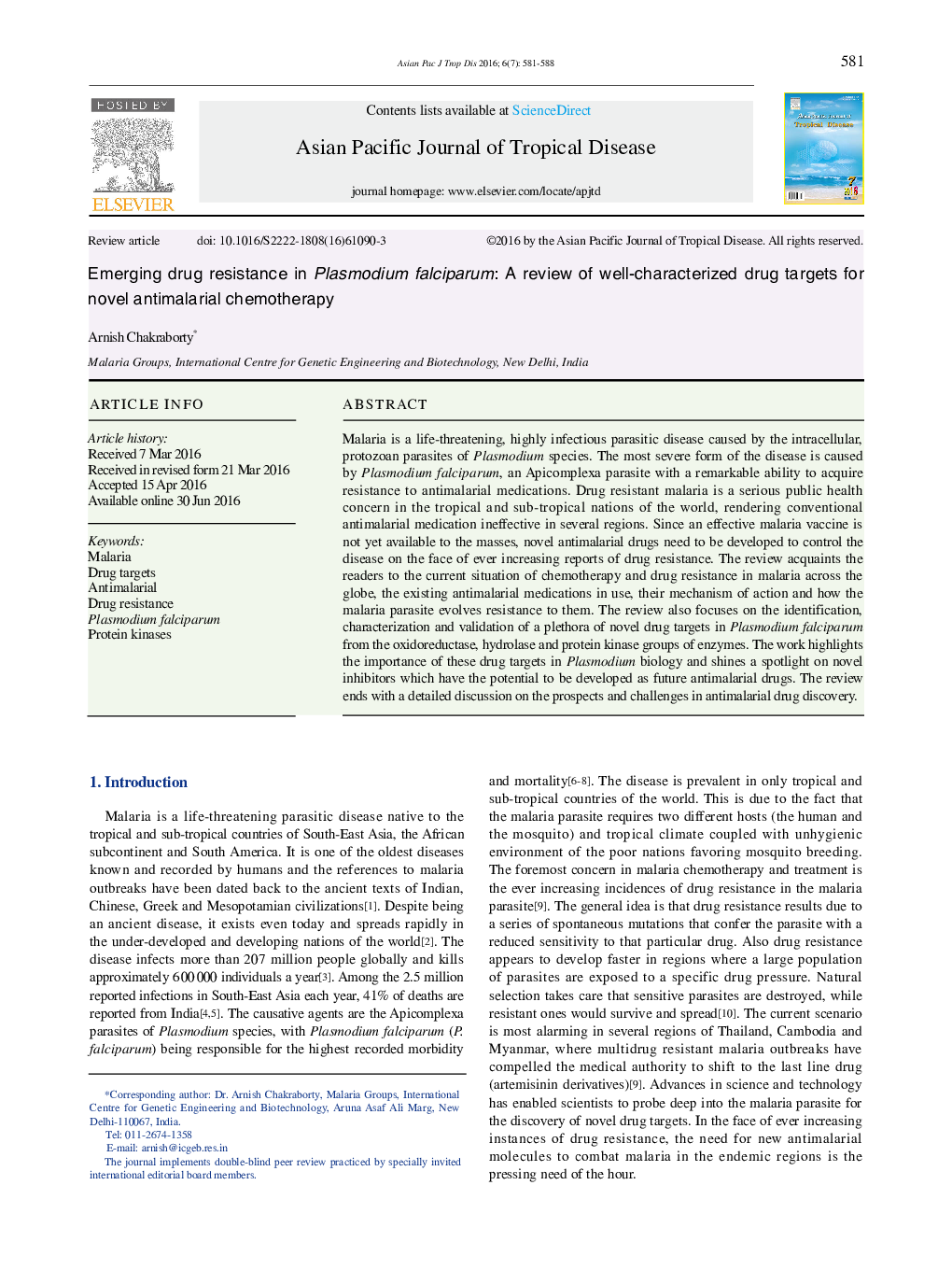| Article ID | Journal | Published Year | Pages | File Type |
|---|---|---|---|---|
| 3453966 | Asian Pacific Journal of Tropical Disease | 2016 | 8 Pages |
Malaria is a life-threatening, highly infectious parasitic disease caused by the intracellular, protozoan parasites of Plasmodium species. The most severe form of the disease is caused by Plasmodium falciparum, an Apicomplexa parasite with a remarkable ability to acquire resistance to antimalarial medications. Drug resistant malaria is a serious public health concern in the tropical and sub-tropical nations of the world, rendering conventional antimalarial medication ineffective in several regions. Since an effective malaria vaccine is not yet available to the masses, novel antimalarial drugs need to be developed to control the disease on the face of ever increasing reports of drug resistance. The review acquaints the readers to the current situation of chemotherapy and drug resistance in malaria across the globe, the existing antimalarial medications in use, their mechanism of action and how the malaria parasite evolves resistance to them. The review also focuses on the identification, characterization and validation of a plethora of novel drug targets in Plasmodium falciparum from the oxidoreductase, hydrolase and protein kinase groups of enzymes. The work highlights the importance of these drug targets in Plasmodium biology and shines a spotlight on novel inhibitors which have the potential to be developed as future antimalarial drugs. The review ends with a detailed discussion on the prospects and challenges in antimalarial drug discovery.
